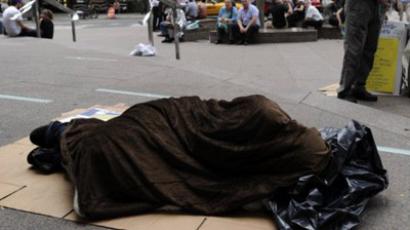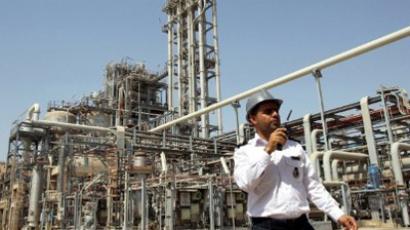Nothing personal, just geopolitics: Britain bans Iran-based TV channel
Britain has revoked the press license of Iran-based English language broadcaster Press TV, accusing it of violating press regulations. But some say the decision was really motivated by British geopolitical interests.
The Office of Communications (Ofcom), a government-approved watchdog overseeing broadcasting and telecommunications in the UK, says the channel does not control its content. It also says the channel’s license should be held by its office in Tehran, not London, since its editorial control is clearly coming from the Iranian capital.In addition, Press TV is accused of not paying a fine of £100,000 ($156,000) for airing an interview with an imprisoned journalist in 2009.Press TV says it's being silenced, calling the withdrawal of the license “a clear act of censorship."Phil Rees, a UK-based media analyst and author, thinks that although the regulation breaches did technically take place, the driving force behind the decision is geopolitics. “If this had been separate from geopolitics, it would not have happened – and some other kind of sanction would have been made,” he explained.“Press TV has been viewed through geopolitical terms – and there is a breakdown of relations between Britain and Iran,” he continues. “Press TV’s journalism is not viewed through journalism, but it is viewed in terms of British-Iranian relations.”“Most of the criticisms of Press TV have been due to its coverage, because it sees the Middle East very differently than the mainstream media in Britain,” the journalist asserts.Rees also says the withdrawal of Press TV's license means a limitation of dialogue in the British media, a “tragedy” at the moment when British-Iranian relations are at their lowest point in a long time.
And journalist Yvonne Ridley told RT that this story is part of a bigger phenomenon in the US these days.“Through Wikileaks we discovered that the American government was putting pressure on the British government to pull the plug on Press TV. They’ve obviously passed that pressure on to Ofcom, and today Press TV was pulled off the Sky satellite platform. But we need to put this in perspective – it would be like the BBC being pulled off broadcasting on the Isle of Man. Press TV has more than a dozen satellites around the world, so it will continue, and of course it’s streamed live on the Internet.”Ridley also noted that the move shows how “the so-called ‘free democracies’ don’t like the truth, and they will go to extraordinary levels of censorship to stop what they see as criticism of the way that they run their governments.”














